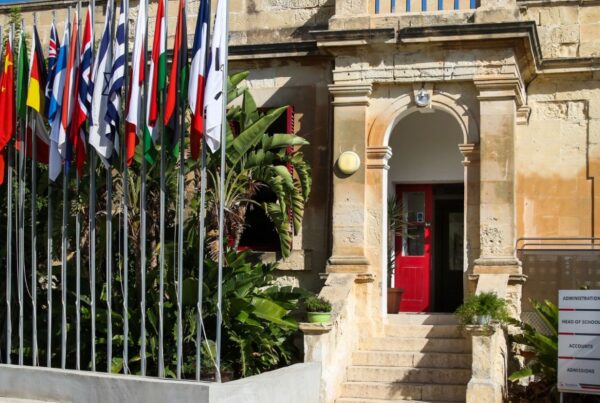 如果您点击这里,此页面将被翻译成中文。
如果您点击这里,此页面将被翻译成中文。
 如果您点击这里,此页面将被翻译成中文。
如果您点击这里,此页面将被翻译成中文。
 如果您点击这里,此页面将被翻译成中文。
如果您点击这里,此页面将被翻译成中文。
 如果您点击这里,此页面将被翻译成中文。
如果您点击这里,此页面将被翻译成中文。
Buying Property in Malta
Malta’s property market has been gaining significant attention in recent years, attracting both local and international buyers. Investing in property in Malta is an attractive opportunity for many investors, thanks to a combination of tax advantages, economic stability and a growing real estate market. In this article, we will explore in detail the main reasons why you should consider Malta as a destination for your real estate investments.

What are the advantages of buying a property in Malta?
–Strategic Location and Mediterranean Climate
Malta is an archipelago located in the heart of the Mediterranean, with a mild and sunny climate for most of the year. This location attracts tourists, professionals and retirees from all over the world, creating a constant demand for accommodation. The tourist season lasts about nine months of the year, offering opportunities for short-term rentals.
– Economic and Fiscal Stability
Malta boasts one of the most stable economies in the European Union, with investor-friendly tax policies. There are no property taxes, waste taxes or other municipal taxes, making investing even more affordable. In addition, the nominal corporate tax rate is 35%, but there are refund mechanisms that can significantly reduce the tax burden for property investors.
– Property Investment Yield
The Maltese property market offers annual rental yields ranging from 4% to 8%, depending on the location and type of property. For example, a modern apartment in Sliema, near the sea, can provide an annual return of 7%.
– Demand for Short and Leong-Term Rentals
The growing influx of international tourists and professionals has increased the demand for both short-term and long-term accommodation. The most popular areas include Sliema, St. Julian’s, Msida, Gzira and Valletta. In these areas, modern apartments with sea views are highly sought after, ensuring a stable rental market.
– Portfolio Diversification Opportunities
Investing in Malta allows you to diversify your property portfolio, reducing the risks associated with more volatile property markets. The stability of the Maltese market provides a solid basis for long-term investment. Additionally, buying property in Malta can bring benefits such as the opportunity to obtain a Maltese passport, facilitating travel and business opportunities.
– Simplified Purchase Procedure
Malta offers relatively simple property purchase procedures, with less bureaucracy than other European countries. Foreigners can purchase property without significant restrictions, making it easier to invest. However, it is important to note that non-EU/EEA/Swiss citizens must obtain an AIP (Acquisition of Real Estate) permit in order to purchase a property in Malta, unless the property is located in a Special Designated Area (SDA).
– Quality of Life and Safety
Malta offers a high quality of life, with an excellent healthcare system and a low crime rate. Public transport is cheap and the efficient bureaucracy makes day-to-day operations easy. The two official languages, Maltese and English, with many inhabitants also speaking Italian, make communication very easy.
Exploring the Buying Process
Now that we’ve covered the preliminary aspects of buying property in Malta, let’s delve into the step-by-step process involved.

Establishing a Budget and Financing Options:
Before embarking on your property Malta search, it’s crucial to determine your budget and explore the available financing options. Consider consulting with financial institutions to assess your eligibility for a mortgage or explore alternative funding avenues.
Engaging a Licensed Real Estate Agent:
Working with a licensed real estate agent who specializes in the Maltese property market can significantly simplify your search. They possess in-depth knowledge of the local market, have access to a wide range of properties, and can guide you through the negotiation process.
Property Viewings and Due Diligence:
Once you’ve identified potential properties, arrange viewings to get a firsthand look at each one. Take note of important factors such as location, amenities, proximity to essential services, and potential for capital appreciation. Conduct thorough due diligence by verifying property ownership, permits, and any potential issues that may affect the purchase.
Making an Offer and Negotiating:
If you find a property that meets your requirements, it’s time to make an offer. Your real estate agent will assist you in preparing a formal offer letter, outlining the proposed purchase price and any conditions you wish to include. The seller may accept the offer, reject it, or negotiate the terms. Skilled negotiation can be crucial in securing a favorable deal.
Engaging a Notary Public:
Once your offer is accepted, it’s essential to engage a Notary Public. In Malta, the Notary Public plays a pivotal role in property transactions. They ensure all legal obligations are met, conduct necessary searches, and oversee the drafting and signing of the final contract.
Conducting Property Surveys and Inspections:
To ensure the property is in good condition and free from any structural issues or hidden defects, it’s advisable to hire a professional surveyor. They will assess the property’s condition, highlighting any potential concerns that may affect its value or require repairs.
Finalizing the Purchase:
Before finalizing the purchase, review the contract thoroughly with your legal representative. Ensure all necessary clauses and conditions are included, such as the completion date, payment terms, and any contingencies. Once all parties are satisfied, sign the contract and pay the agreed-upon deposit.
Completing the Transfer and Taxes:
The final step involves the transfer of ownership and buying property in Malta tax. Your Notary Public will oversee the registration of the property in your name at the Public Registry. Additionally, they will guide you through the payment of stamp duty and any other property taxes applicable to the purchase










